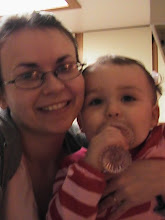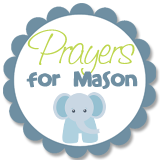Thank you to Sarah Scrafford for this wonderful guest post!
When You Must Not Breastfeed
There’s nothing babies want as soon as they’re born than to sleep and eat, and the only food that they want is their mother’s milk. Breast milk is a wonder of nature – packed with all the essential proteins, fat, sugar and water that babies need for their survival, it’s the only sustenance your baby needs for the first six months of his/her life. Doctors recommend that you breastfeed your baby exclusively for the first six months, after which you can supplement his/her diet with bottled milk and other baby food.
Breastfed babies have been proven to fall ill less often than those who have been bottle-fed; the antibodies in breast milk act as powerful stimulants on the child’s immune system and prevent him/her from contracting common illnesses like a cold and the flu. Breast milk is also known to be beneficial towards a child’s intellectual development, and the act of breastfeeding enhances the bond between mother and child.
Even with all these benefits that breastfeeding offers, there are times when it’s not advisable to put your baby to your breast, and these are:
- When you’re a regular smoker
- When you consume alcohol on a regular basis. If you’re still keen on giving your baby breast milk, do so only two hours after you’ve had a drink.
- When you are HIV positive.
- When you are a regular user of drugs like cocaine and marijuana. Besides making your baby addicted, they can have adverse side-effects.
- When you’re undergoing chemotherapy.
- When you are on certain drugs (consult your doctor if you’re not sure).
- When you have active tuberculosis.
- When your baby has a rare birth condition that makes him or her intolerant of lactose and galactose, sugars found in any kind of milk.
- When you’ve had a thyroid scan (the radioactive iodine will stay in your milk for weeks after the scan).
It’s ok to continue breastfeeding even when you are ill with the flu or when you have a cold. Viral infections cannot be passed on through breast milk.
You can continue to breastfeed your older child even when you become pregnant with the next one.
Immunizations to the mother do not mean that you have to stop breastfeeding.
If you’re not sure about any aspect of breastfeeding, talk to your doctor before you take any decision to continue or stop.
By-line:











3 Comments:
Thanks for the information. Some of those I knew, but there were a few listed that I had never heard. Thanks for the heads-up!!
Thank you for sharing. Breastfeeding is such a wonderful thing but there are times when it is just not possible. thats great info. thank you.
Great article. Breast feeding is a personal choice, It is of course the most natural way of feeding your baby but some other moms have reasons not to. It is best for up to 2 years then formula takes over.
Post a Comment